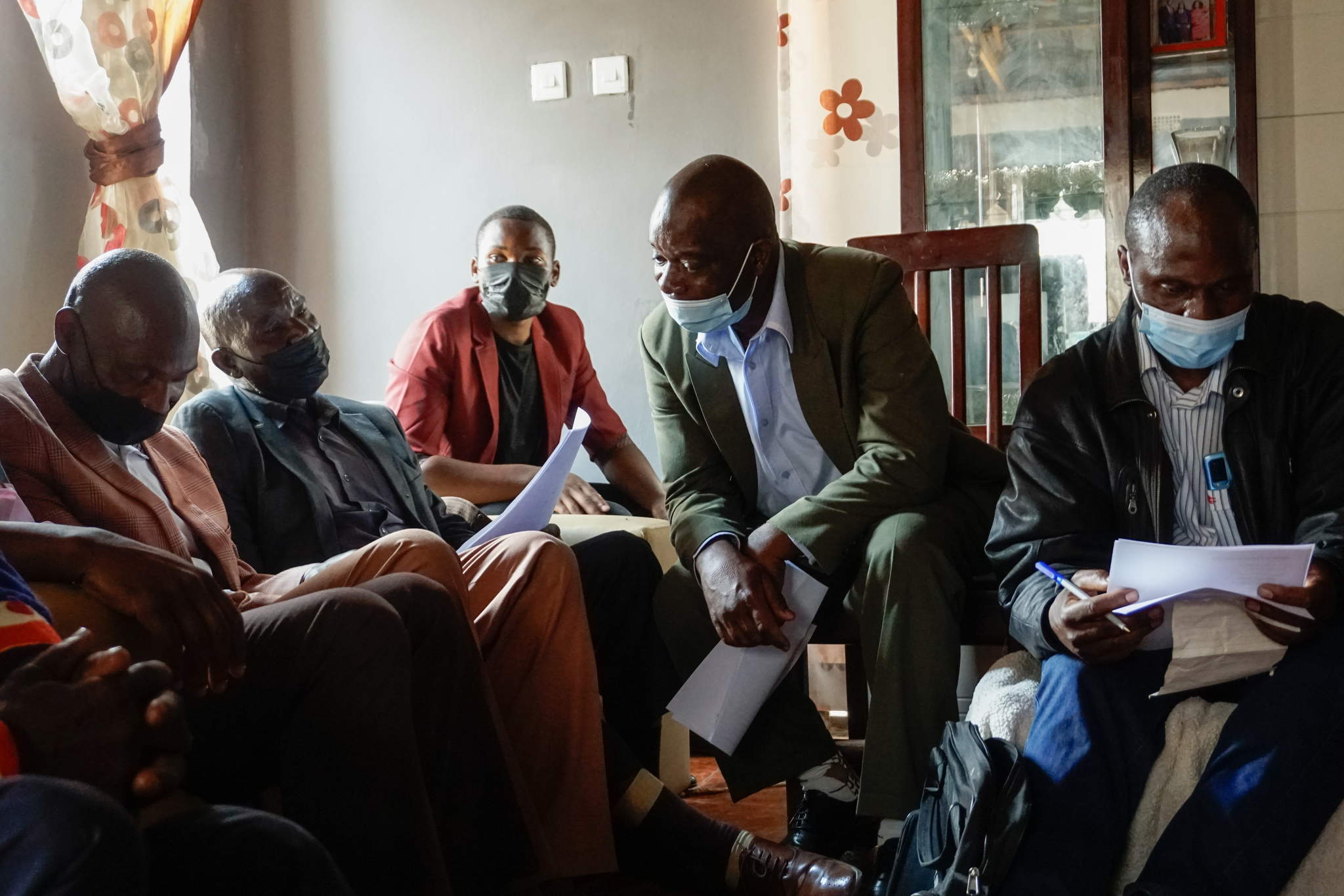CHITUNGWIZA, ZIMBABWE — A white tent billowed in front of the Simango family home. On a sunny day, dozens of guests in party clothes streamed inside, oohing and aahing over the elegant décor: white-clothed tables blooming with gold wine glasses, gold table mats and white artificial roses, all in service of toasting the end of a negotiation.
For two hours, the families of Tapiwanashe Gladys Simango, 28, and her fiancé, Obvious Muzawanga, 31, had engaged in a longstanding southern African marital tradition. Known as a roora in Shona and a lobola in Ndebele, the event marks the prospective groom paying a bride price and symbolically merging the two families.
The practice has preceded Zimbabwean weddings since pre-colonial times, but what was once a small family event has restyled itself for an age of reality TV and social media. Couples want to mimic what they see on their screens — no matter the cost. “Because they put it in the public domain, it has to look decent, it has to trend, it has to be fashionable,” says Sithabiso Mazibeli Marangwanda, the chief operating officer of Nematombo Group, an event-planning company in Harare, the capital.
In Zimbabwe, a couple is considered married after their roora; later, many throw a larger celebration known as a white wedding. But in recent years, rooras have grown so elaborate that, for some families, they’re essentially the first of two weddings. “Several factors have impacted the sudden and increased rise of roora events, which include the realization by the brides and grooms that the occasion is their traditional wedding and a notable event,” says Farai Chakabuda, an event strategist in Harare who oversees a wedding-industry awards program.
Simango spent more than three months and hundreds of dollars on the roora event last year at her family home outside Harare, hiring a caterer, a decorator and a photographer. She bought a striking black-and-gold gown, plus matching dresses and headpieces for her nine-member roora squad. “With my husband, we have always tried to make sure that for things that matter to us we celebrate in a memorable way,” Simango says, “so from that, I then thought of how we would want to remember our roora day.”






The roora has proven adept at evolving with the times. Centuries ago, a groom’s family would offer a hoe, blankets, baskets of grain or heads of cattle to a bride’s family, according to a study in the Journal of Southern African Studies, an academic journal published in the United Kingdom. In the mid-1800s, that gave way to gold and guns purchased from Portuguese traders. In its current incarnation, the roora involves cash, or the promise of cash.
Throughout, the event remained a mostly intimate affair. Elizabeth Mukupuki got married in 1981. “During that time, the ceremony was not publicized as it is being done now,” says the 60-year-old, who lives west of Harare in the town of Norton. “It was a bit secretive because there was fear that if a lot of people were told, you could be bewitched such that the ceremony might fail to take place.”
About a dozen people attended Mukupuki’s roora. After the talks, guests feasted on meat and sadza, a thick porridge, that her husband brought as part of the bride price. “Now things have changed,” she says.
Marangwanda noticed the shift about five years ago. “It just started probably by saying, ‘Let’s just have a tent and chairs for people to be a bit more comfortable as they are eating,’” she says. Soon bridal wish lists grew more ornamented. “We started incorporating things like hari, huts, mbira, drums, rattles to depict our Zimbabwean culture.”
"Our Perfect Wedding," a South African reality television series about often-ornate nuptials, has influenced Zimbabwean celebrations.
These days, it’s not unusual for her company to oversee five rooras on a single Saturday, and more than 20 a month — demand that dipped only briefly during the pandemic. Her roora packages cost between $300 and $2,000; the most lavish includes decorations, catering, photography, a cake and a sound system to play music. However, even a bargain roora is often a splurge, as the country’s average household income is about $114 a month, according to a 2020 report by the Food and Nutrition Council, a government-regulated agency.
It’s no coincidence that the roora’s makeover coincided with the rise of social media. Simango, for instance, turned to Facebook for roora inspiration. Marangwanda also credits “Our Perfect Wedding,” a popular South African TV show that follows engaged couples as they prepare for often-ornate nuptials. She has watched roora budgets double as families cave to social pressure to host a swoon-worthy event. “These ceremonies serve the purpose of publicizing that our daughter or son is married,” says Rekopantswe Mate, a sociologist at the University of Zimbabwe in Harare. “But the celebrations are for those who have money and resources.”



Not everyone is impressed. Some traditional healers frown on gilded rooras, and in particular large guest lists. In Zimbabwean culture, a roora guest who secretly objects to the union could sour the couple’s luck. “It invites bad omen because even people who are not happy for the marriage to take place will come,” says Constance Makomo, a traditional healer in Harare. “Some end up struggling with conceiving, and for some, the marriage won’t last for a long time.”
Simango has no regrets about her roora. Once the families settled on a bride price — cementing Simango and Muzawanga as husband and wife — the partygoers erupted in singing and dancing. The aroma of lunch wafted across the tent: chicken, beef stew, cow trotters, sadza, rice. Afterward came hours of gospel and traditional music, laughter, vibes of happiness. The couple’s white wedding is months away, but they’d already started planning the festivities.
Gamuchirai Masiyiwa is a Global Press Journal reporter based in Harare, Zimbabwe.
TRANSLATION NOTE
Gamuchirai Masiyiwa, GPJ, translated some interviews from Shona.








